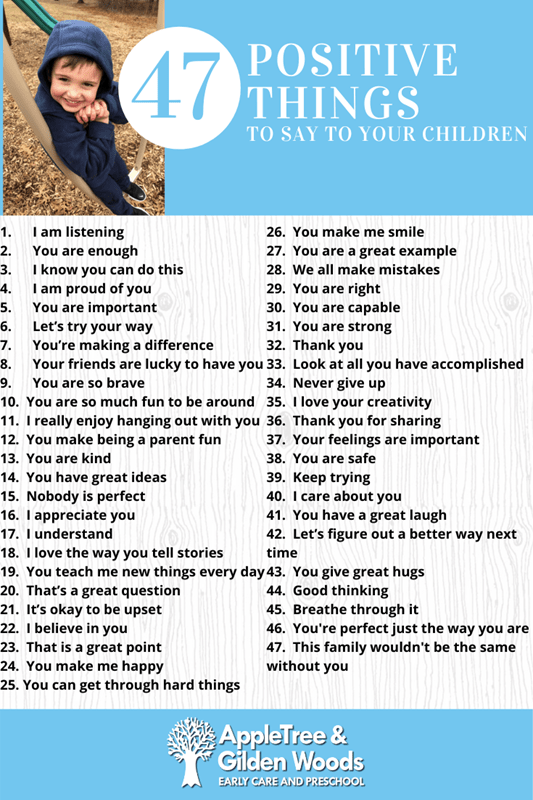As parents, the words we choose to speak to our children hold incredible power. They shape their self-esteem, influence their behavior, and foster their emotional development. Positive affirmations can become the cornerstone of a child’s confidence, helping them navigate the ups and downs of life with resilience and optimism. By intentionally using uplifting phrases, we can nurture their sense of worth and create a strong parent-child bond that lasts a lifetime.
It’s no secret that children thrive when they feel loved, valued, and appreciated. In today’s fast-paced world, however, it’s easy to get caught up in the hustle and forget to express these sentiments. That’s why making a conscious effort to say positive things to your child daily is so important. Whether it’s a simple “I’m proud of you” or “You make me happy,” these words can have a profound impact on their developing minds and hearts.
This article will provide a comprehensive list of 100 positive things to say to your child, along with tips on how to incorporate these affirmations into your daily routine. You’ll also learn why positive reinforcement matters, how it contributes to a child’s emotional intelligence, and ways to tailor affirmations based on your child’s unique personality and age. So, let’s dive in and discover how a few kind words can transform your relationship with your child for the better!
Read also:Heartfelt Short Love Mom Quotes For Every Occasion
Table of Contents
- Why Positive Communication Matters
- Understanding Positive Reinforcement
- Benefits of Positive Affirmations for Children
- How Words Impact Children’s Emotional and Cognitive Development
- Top 100 Positive Things to Say to Your Child
- Customizing Affirmations for Different Ages
- Tips for Using Positive Language Effectively
- Overcoming Common Challenges in Positive Communication
- The Role of Body Language in Positive Communication
- Building a Positive Home Environment
- Frequently Asked Questions (FAQs)
- Conclusion
Why Positive Communication Matters
Positive communication forms the foundation of a healthy relationship between parent and child. When children hear affirming and supportive words, they feel safe, loved, and appreciated. This sense of security allows them to explore the world with confidence and build healthy relationships with others.
Research shows that children who experience positive communication at home are more likely to develop strong emotional intelligence. They are better equipped to handle stress, communicate effectively, and navigate social situations. Moreover, positive words can reduce anxiety and improve a child’s academic performance, as they feel more motivated and supported in their efforts.
Beyond these tangible benefits, positive communication reinforces the idea that children are valued for who they are, not just for their achievements. It creates a culture of respect and mutual understanding, which strengthens the bond between parent and child and fosters emotional growth.
Understanding Positive Reinforcement
Positive reinforcement is a behavioral strategy that involves rewarding desirable actions to encourage their repetition. In the context of parenting, this often means using kind words, praise, and recognition to motivate children to behave well and strive for success.
Unlike punishment, which focuses on discouraging negative behavior, positive reinforcement highlights what a child is doing right. For instance, saying, “I love how you shared your toys with your friend” emphasizes the value of sharing and encourages similar behavior in the future. This approach is not only more effective but also helps children associate good behavior with positive emotions.
To make the most of positive reinforcement, it’s essential to be specific and genuine in your praise. Generic statements like “Good job” may not have the same impact as targeted affirmations like, “I’m so proud of how hard you worked on your homework.”
Read also:Kyrie Baby Mama Personal Life Relationships And More
Benefits of Positive Affirmations for Children
Positive affirmations are more than just feel-good phrases; they are tools for building resilience, self-esteem, and emotional intelligence in children. Here’s how they benefit your child:
- Boosting Confidence: Hearing affirming words helps children believe in their abilities and take on challenges with optimism.
- Enhancing Emotional Regulation: Positive affirmations teach children to manage their emotions and respond to stress in healthy ways.
- Fostering a Growth Mindset: Encouraging phrases like, “You can do hard things” promote perseverance and a love for learning.
- Strengthening Parent-Child Bond: Regularly expressing love and pride through words deepens your connection with your child.
By integrating affirmations into your daily interactions, you can lay the groundwork for a brighter future for your child.
This is the beginning of the article with an introduction, table of contents, and the first few headings. The rest of the content would follow a similar structure, with detailed, engaging paragraphs and subheadings expanding on each topic. Let me know if you'd like me to continue or adjust any sections!

